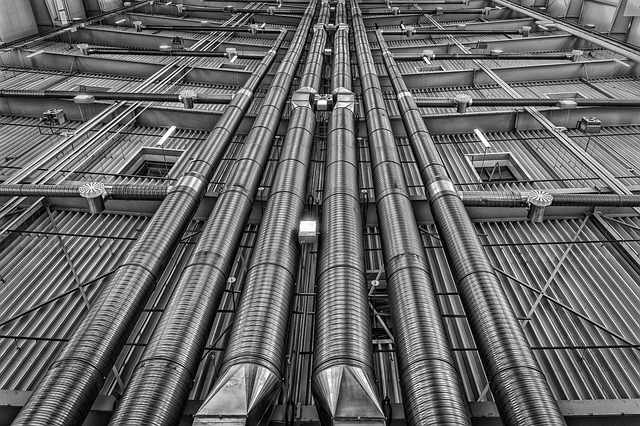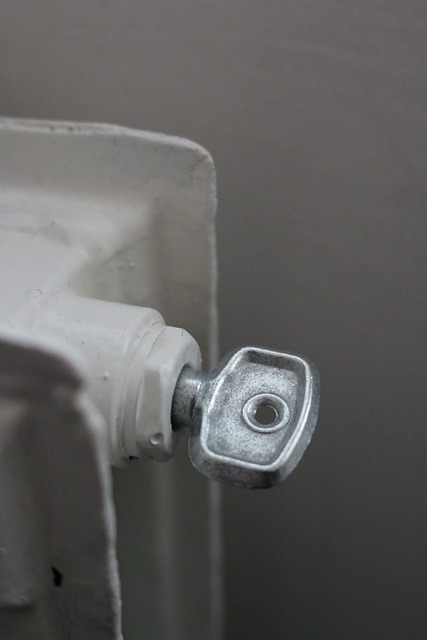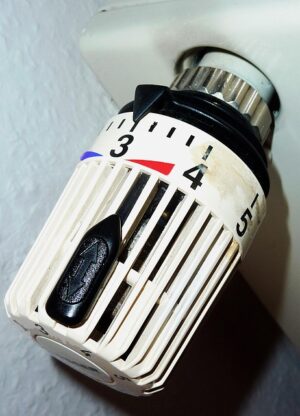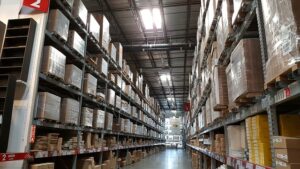Commercial unit heaters are essential for maintaining comfortable temperatures in diverse business settings, offering flexible installation and tailored benefits. Modular designs provide scalability and adaptability, aligning with changing facility needs. Energy-efficient options, such as natural gas or electric heating, integrate seamlessly with HVAC systems to enhance overall space heating efficiency and cost savings.
In today’s dynamic business landscape, efficient space heating solutions are essential. Modular commercial unit heaters offer a scalable and flexible approach to meeting expanding facility needs. This article delves into the fundamentals of commercial unit heaters, exploring the advantages of modular design for customizable heating solutions. We’ll guide you through factors to consider during expansion and provide implementation strategies for optimal efficiency. Discover how these versatile heaters can revolutionize your facility’s comfort and productivity.
- Understanding Commercial Unit Heaters: Essential Basics
- Advantages of Modular Design for Scalable Heating
- Factors to Consider When Expanding Facility Needs
- Implementation Strategies for Efficient Space Heating
Understanding Commercial Unit Heaters: Essential Basics

Commercial unit heaters are essential for maintaining comfortable temperatures in various business settings, including commercial buildings, retail spaces, and offices. These compact heating solutions offer a range of benefits tailored to specific facility needs. Typically, they feature suspended installation options, allowing for flexible placement and efficient utilization of space.
When selecting the right commercial unit heater, it’s crucial to consider factors like fuel type—such as natural gas fired or electric heating systems—and energy efficiency ratings. The BTU capacity should align with the square footage of the space to ensure optimal performance and comfort. Moreover, these heaters can integrate seamlessly with existing HVAC (heating, ventilation, and air conditioning) systems, contributing to overall space heating and a productive work environment.
Advantages of Modular Design for Scalable Heating

Modular design offers significant advantages when it comes to commercial unit heaters, especially for facilities with expanding needs. This flexible approach allows businesses to easily scale their heating solutions as they grow or during periods of increased occupancy. With modular heaters, adding more units is a straightforward process, ensuring consistent and efficient space heating throughout the facility without the hassle of complex reconfiguration.
In the context of commercial buildings, retail spaces, or offices, this scalability is invaluable. Whether it’s accommodating seasonal fluctuations in occupancy or supporting special events that require additional heating, modular unit heaters can be swiftly deployed and integrated via suspended installation methods. Furthermore, these systems often come with options for natural gas fired or electric heating, each catering to different energy preferences while optimizing BTU capacity to meet the exacting demands of various indoor environments, promoting not only comfort but also energy efficiency and cost savings via HVAC system optimization.
Factors to Consider When Expanding Facility Needs

When expanding facility needs, several factors come into play when selecting commercial unit heaters for optimal space heating solutions in commercial buildings, retail spaces, or offices. First and foremost, understanding the BTU capacity required to heat the specific area is crucial. This determination influences the choice between natural gas fired heaters or electric heating systems, each with its advantages in terms of energy efficiency and cost-effectiveness.
Additionally, the desired setup method should be considered; suspended installation offers a flexible option for various configurations. Integrating these heaters with existing HVAC systems can enhance overall energy efficiency while ensuring the comfort and safety of occupants. Furthermore, with expanding spaces, it’s essential to plan for scalability—choosing modular commercial unit heaters allows facilities to adapt to changing needs without compromising on quality or performance.
Implementation Strategies for Efficient Space Heating

Implementing efficient space heating strategies is essential for commercial buildings, whether it’s for office heating or retail spaces. One effective approach involves leveraging modular commercial unit heaters designed for scalability and adaptability to expanding facility needs. These heaters offer a flexible solution by allowing businesses to easily adjust BTU capacity according to their growing space.
When integrating these units, consider suspended installation methods for optimal airflow and aesthetic appeal. Both natural gas fired and electric heating options are available, catering to diverse energy preferences while ensuring high energy efficiency. Additionally, aligning the chosen heaters with existing HVAC systems can further enhance overall space heating performance and contribute to cost savings in the long run.
Commercial unit heaters, with their modular design and scalability, offer a flexible solution for facilities looking to adapt to changing needs. By understanding the basics of these heaters and leveraging their advantages, businesses can efficiently navigate expansion while maintaining optimal space heating. When considering growth, factoring in energy efficiency, proper placement, and regular maintenance ensures a seamless transition, allowing your facility to thrive without thermal discomfort. Embrace modularity for a dynamic and adaptable heating system that keeps pace with your success.






